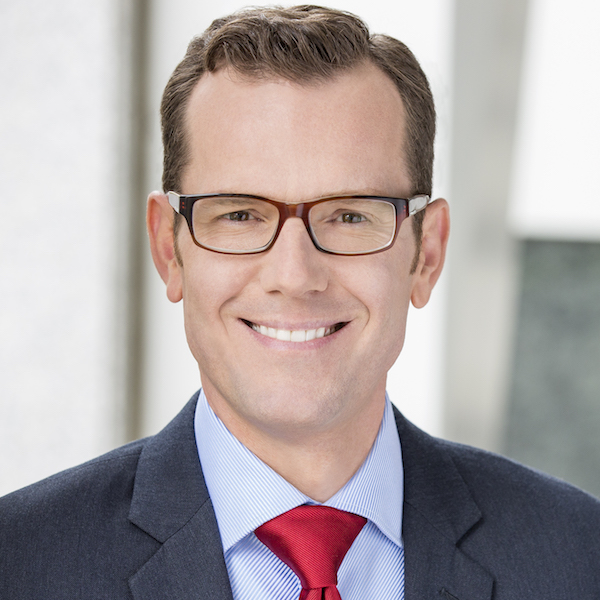First responders serve as the frontline managers of risk and safety in the public sector, responding in real time to worst-case scenarios across our communities 24 hours per day, every day of the year. The threats responded to by our police, firefighters, EMS professionals and 911 dispatchers include murders, suicides, high-risk domestic violence, environmental catastrophes, active shooters, mass evacuations and myriad other terrible realities most of us never confront firsthand.
Responding to these harsh realities leads to two interrelated types of risk. The first, Decision-Action Risk, captures the extent to which first responder decisions and actions mitigate the risk of the situations they respond to over time. The second, Wellness-Trauma Risk, captures the extent to which first responders are negatively affected over time by the stressful and traumatic aspects of the situations and scenarios to which they respond. Of course, Wellness-Trauma Risk, by undermining emotional stability and decision-making quality, directly aggravates Decision-Action Risk, which in turn fuels great Wellness-Trauma Risk. Both types of risk are the direct concern of risk managers, first responders, the public at large and any stakeholders concerned with mitigating risk or maintaining public safety. Research demonstrates that first responders are also suffering from an unsustainable degree of understaffing, further aggravating these risks. Fortunately, many solutions are available.
People Risk Management Solutions
First responders benefit substantially from high-quality peer support, or fellow first responders specially trained to provide support related to both work and non-work stressors. Because peer supporters are also first responders themselves, they are easy to access, capable of building trust, and relate effectively to the realities of the work. Research has shown that 90% of first responders who used peer support found it helpful, 80% reported they would seek assistance again and 90% said they would recommend the program to a peer (Digliani, 2018).
While peer support is a key part of the solution to managing Wellness-Trauma Risk, and in turn Decision-Action Risk, it is far from the entire solution.
Many challenges experienced by first responders routinely go beyond what can be resolved with peer support alone and must instead be referred to licensed clinicians qualified to treat post-traumatic stress, depression, suicidal thinking, and related mental health issues common amongst first responders. Many years of firsthand experience has taught us the critical importance of utilizing clinicians who are culturally competent (i.e., familiar with the realities of first responder work), effective (i.e., skilled at treatment), professional (i.e., ethical and law-abiding) and available (i.e., responsive when needed).
Technology Risk Management Solutions
First responder Wellness-Trauma Risk and Decision-Action Risk are challenges we face on a national scale, and therefore nationally scaled solutions are necessary to ensure consistent quality, accessibility and availability of support. Technology has become a vital key to addressing these challenges on a national scale. Examples of agencies implementing high-tech wellness solutions for their first responders include the Vacaville Police Department and the Memphis Police Department, and both agencies subsequently won the prestigious Destination Zero National Officer Safety and Wellness Awards, a testament to their innovation and leadership in implementing strong wellness programs designed to care for their personnel at scale.
Other examples of technology being utilized to address the Wellness-Trauma Risk and Decision-Action Risk include providing training and certification of peer supporters, training and certification of first responder clinicians, access to certified first responder peer supporters and clinicians, access to crisis support resources, a wide range of high-quality wellness self-help tools designed specifically for first responders, and in-hand, on-demand access to the full range of wellness tools and support resources available to first responders at any given public safety agency, regardless of the size of the agency.
Leadership Risk Management Solutions
Public safety agencies have experienced substantial leadership turnover in recent years. Fortunately, strong leadership training is available for first responders at mass scale. For example, retired Navy Seals and NYT best-selling authors Jocko Willink and Leif Babin recently co-created online training for first responders on topics including extreme ownership, leading up and down the chain of command and how to care for team members while also achieving the overall mission of your organization. Additionally, executive peer support for police chiefs and fire chiefs is now available to help ensure that leaders have access to the same level of support available to other first responders.
Conclusion: Large-Scale Challenges and Scalable Solutions
First responders nationwide face enormous challenges and stressors on a routine basis leading to Wellness-Trauma Risk and Decision-Action Risk, which should be a topline concern for anyone invested in upholding public safety. Fortunately, many scalable solutions now exist that can help address these challenges via training and certification programs, scalable technology applications, leadership development and peer support.
*The views and opinions expressed in the Public Risk Management Association (PRIMA) blogs are those of each respective author. The views and opinions do not necessarily reflect the official policy or position of PRIMA.*

By: Dr. David Black, Ph.D.
President, Lexipol Wellness Solutions & Chief Psychologist, California Police Chiefs Assoc.
Summary of Qualification
Dr. Black has 20+ years serving first responders as a psychologist. He is
president of Lexipol Wellness Solutions, serving 2,000,000 professionals and more than 10,000 agencies nationally.
Dr. Black is the founder of Cordico and has served on working groups and committees for the International Association of Chiefs of Police, the National Police Foundation, the National Sheriffs Association, the National Fraternal Order of Police, and other associations to advance first responder wellness nationwide.
Responsibilities
Dr. Black's responsibilities include collaborating on wellness solution strategy and execution for public safety agencies across the United States, in addition to strategic partnerships, content development, recruitment, acquisitions, thought leadership, and speaking at conferences.
Business Experience
- Founder and CEO of Cordico Inc. (sold to Lexipol in 2020)
- Founder, CEO, and Chief Psychologist of Cordico Psychological Corporation (sold privately in 2022)
- President of Lexipol Wellness Solutions (Current)
- Lexipol Board of Directors (Current)
- 20 years of successful entrepreneurial business experience
Professional Affiliations
- Founding Member - National Sheriffs’ Association (NSA) Psychological Services Committee (2018 to Present)
- Advisory Board Member - National Police Foundation, Center for Mass Violence Response Studies (2019 to Present)
- Ethics Committee Member - International Association of Chiefs of Police (IACP), Police Psychological Services (2019 to 2023)
- National FOP Officer Wellness Committee and Provider Evaluation Subcommittee (2019 to Present)
- Member - International Association of Chiefs of Police (IACP), Police Psychological Services (2013 to Present)
- Committee Member - Psychological Fitness-for-Duty Evaluation Guidelines Revision Committee (2017-2018) International Association of Chiefs of Police (IACP) Police Psychological Services Section
- Committee Member - Officer-Involved Shootings Guidelines Revision Committee (2017-2018) International Association of Chiefs of Police (IACP) Police Psychological Services Section
- Member - Police and Public Safety Psychology Section, American Psychological Association
- Member - American Psychological Association (APA)
(2001 to Present)
Education
- Ph.D., Clinical Psychology (APA-Approved) - University of Georgia (2000)
- Pre-Doctoral Internship (APA-Approved) - Seattle Veterans Affairs Medical Center (1998-1999)
- Master of Science, Clinical Psychology - University of Georgia (1997)
- Bachelor of Science, Psychology, cum laude - University of Washington (1995)
- Bachelor of Arts, Philosophy, cum laude - University of Washington (1995)



